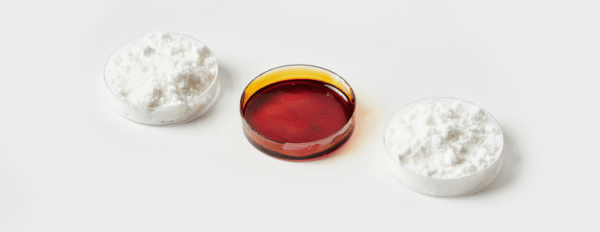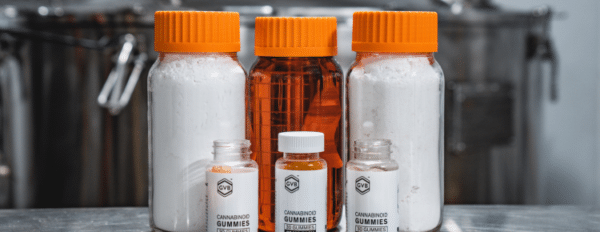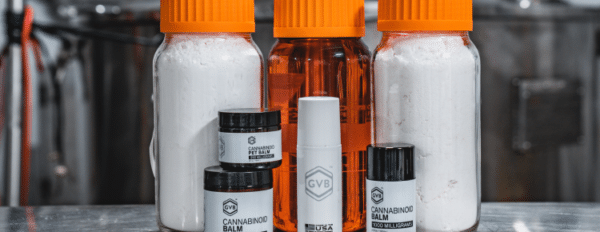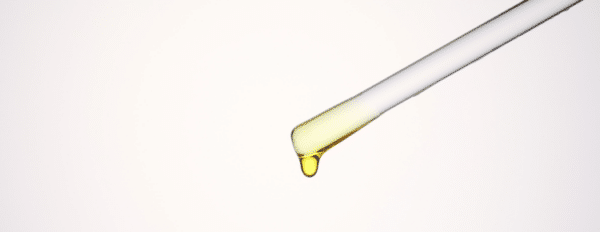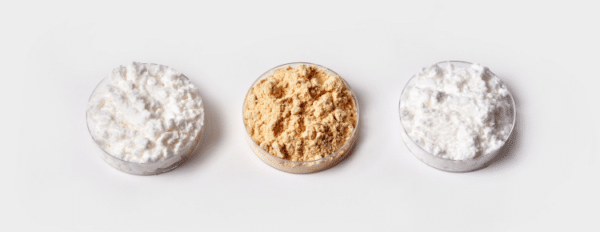From the Founding Fathers’ hemp fields to naval shipyards supplied with local hempen sails, Virginia has a long and rich history with the Cannabis sativa plant. Is Virginia still a fertile market, though, for starting a hemp business, or are there overwhelming impediments to making money with hemp in this highly taxed and regulated state?
In this guide, learn everything you need to know about the Virginia hemp market from cultivation conditions to local licensing requirements. By the end, you’ll be well-versed in the benefits and detractors of starting a hemp business in this state.
Virginia cannabinoid law overview
– In 2023, Virginia revamped its hemp laws in an attempt to crack down on illicit cannabinoid sales
– Hemp-related businesses have already begun shutting down¹ in the state
– Opponents contended that Virginia’s new hemp bill was too punitive against non-intoxicating products
– The bill was sustained, though, resulting in a much-more prohibitive environment for hemp entrepreneurs in Virginia
– Hemp products in Virginia must now not only contain less than 0.3% but also contain less than 2mg THC total per package²
– The only exception is when the overall CBD:THC ratio in the product does not exceed 25:1
– If edible products contain any THC whatsoever, they must have child locks
– Penalties start at $10,000 per day
– These new rules have illegalized upwards of 90% of hemp products sold in some Virginia stores
Can I sell CBD in Virginia?
Yes, it is still possible to sell CBD and other hemp products in Virginia, but with certain limitations. The ultimate reasoning remains inscrutable, and the contention was fierce, but the office of Virginia Governor Glenn Youngkin eventually signed a bill significantly restricting the THC content in CBD and other hemp products.
With lawmakers admitting that these new measures, complete with massive daily fines, are designed to make it too expensive for hemp businesses to continue operating, it is no stretch to suggest that even Virginia’s new hemp regulations might not be entirely straightforward. We will now carefully explain the framework of Virginia’s hemp laws to make sure that cannabinoid companies operating in the state have the best chance of remaining in business.
Virginia’s new CBD laws explained
In crafting its new cannabinoid and hemp legislation, Virginia began with the rubric provided by the federal government with the 2014 and 2018 Farm Bills. For the entire nation, the following rules apply: Cannabis sativa products are considered industrial hemp if they contain less than 0.3% delta-9 tetrahydrocannabinol (THC).
As the name suggests, industrial hemp is an industrial or commercial product that is not denoted as having any intoxicating or even medical purpose on the official level. With the understanding that THC is a potentially dangerous substance that should be avoided, CBD and other cannabinoid products are generally treated as innocuous and potentially very beneficial.
Virginia has taken things quite a few steps further, though, by applying additional restrictions on the THC concentrations allowed in its state. To understand how much THC is allowed in your CBD products in Virginia, you must use three different units of measurement: volume, mass, and ratio.
Based on the stringent nature of these criteria alone, it’s all the more reasonable to assume that Virginia’s new laws exist specifically to disincentivize hemp commerce overall. In a nutshell, cannabinoid products in Virginia must not only contain less than 0.3% (to satisfy both state and federal requirements) but must also contain less than 2mg THC per package.
This 2mg-per-package limit for THC is not universal, however. If it can be calculated that the ratio of CBD to THC in the package is no lesser than 25 to 1, Virginia’s 2mg THC limit can be exceeded.
How does Virginia’s 25:1 CBD:THC limit work in practice?
Let’s take a look at a theoretical example. A CBD gummy product currently on the shelves in Virginia contains 250mg CBD and exactly 0.3% THC, remaining within the federal limit. The overall volume of the CBD oil package, however, is 1000ml. At 0.3%, this means that the total THC content of the package is 3mg, exceeding Virginia’s 2mg-per-package limit.
If a shop owner is proficient at calculating ratios, they might be able to determine that the ratio of CBD to THC in this product is closer to 75:1 than 25:1. This same calculation must be performed for all CBD products offered in a shop, however, which is prohibitively time-consuming.
There’s also one important point we have yet to cover: All converted forms of THC are now also considered THC under Virginia’s new hemp law, including delta 8 and other analogues that have recently become popular. Plus, any edible CBD product — including gummies, tinctures, capsules, lozenges, etc. — must now be equipped with a childproof cap to be sold in Virginia if it contains any trace of THC at all.
Additional hemp commerce restrictions in Virginia
Here are some additional measures that may prohibit you from marketing hemp cannabinoid products in Virginia:
– All retailers of hemp products in Virginia must now submit an Edible Hemp Products Disclosure Form (PDF)
– New labeling requirements include the presence of a certificate of analysis (COA) from an approved independent lab
– Hemp producers must provide approved third-party lab reports for any product upon request
– All products containing synthetic derivatives of THC are banned
– Topical hemp products are now subject to strict labeling requirements
Hemp product fines in Virginia
Perhaps most important to note for prospective hemp producers in Virginia is that the state has set the base fine for hemp offenses at $10,000 per offense per day. As a result, some small businesses have already accumulated nearly $100,000 in fines3, no doubt succeeding in the Virginia legislature’s stated goal of shutting them down.
Is it legal to grow hemp in Virginia?
Yes, it is legal to grow hemp in Virginia4, and hemp cultivators are not as restricted in the state as hemp retailers. For the purposes of Virginia law, the point at which a hemp cultivator offloads their harvest to a hemp processor is not considered a “retail sale,” so farmers who grow hemp in the state do not need to make sure their biomass contains less than 2mg THC or has a 25:1 CBD:THC ratio.
Virginia’s other hemp restrictions only apply to farmers when they both cultivate and sell hemp for retail sale. As a result, the onerous restrictions Virginia has placed on hemp retailers will disincentivize many growers from increasing their scope of business by processing the hemp they grow into retail products.
Do you need a license to grow hemp in Virginia?
Yes, licensing is required to grow hemp in Virginia. Hemp licenses are issued by the Virginia Department of Agriculture and Consumer Services (VDACS) and cost $150 per year.
– Virginia Industrial Hemp Cultivator Application (PDF)
Virginia hemp cultivation license process
There is no yearly application deadline for hemp cultivation applications in Virginia, so applicants can provide the necessary documentation to VDACS whenever they choose. According to VDACS, it takes around 45 days for applications to be approved, and hemp cultivation registration lasts for exactly one year from the date of issuance.
Before VDACS can accept your hemp application, you must obtain and submit an FBI Identity History Summary, which must be dated no further than 60 days before the date of your application. This document from the FBI is only required once for each key participant in your hemp operation, however.
Put as simply as possible, the process of acquiring a hemp license in Virginia should look something like this:
– Decide you want to grow hemp in Virginia
– Acquire an FBI Identity History Summary
– Within 60 days, submit your application to VDACS
– Wait around 45 days for approval
– Plan to submit your next application at least 45 days before your current license expires
What requirements does Virginia have of its hemp cultivators?
Hemp cultivators in Virginia must submit regular reports of their activities to VDACS or risk their licenses being revoked. In addition to submitting an Industrial Hemp Registration Change Form whenever they expand into new fields or make any changes to existing cultivation setups, Virginia hemp cultivators must also submit planting reports within 14 days of planting seeds and harvest reports within 5 days of harvesting mature hemp. It is also necessary for Virginia hemp cultivators to test their harvested hemp before selling it.
What other types of Virginia hemp licensing are there?
In addition to its Industrial Hemp Cultivator licensing, Virginia also offers two other types of licenses that hemp professionals operating in the state may need to acquire:
Virginia industrial hemp handler application
Under Virginia law, someone is a hemp handler if they “temporarily possess industrial hemp grown in compliance with state or federal law” and the hemp has not been processed. So, this licensing is required for anyone aside from the registered cultivator of unprocessed hemp products (i.e. biomass) who possesses or transports them for any amount of time. Hemp handler licensing in Virginia costs $250 per person per year.
– Virginia Industrial Hemp Handler Application (PDF)
Virginia industrial hemp processor application
In Virginia, an industrial hemp processor is anyone who “converts industrial hemp into a hemp product.” So, any person involved in transforming unprocessed hemp into retailable hemp products in Virginia must acquire a hemp processor license, which costs $200 per year.
– Industrial Hemp Processor Registration Application (PDF)
Does Virginia have a good climate for hemp cultivation?
Yes, Virginia has one of the best climates in the nation for hemp cultivation, standing in stark contrast with the state’s highly restrictive regulatory environment as it pertains to hemp. Hemp has been grown in Virginia since the earliest days of colonization, making current attitudes in the state all the more perplexing.
The bottom line: Is starting a hemp business in Virginia a good idea?
At this point, we cannot recommend starting a hemp business in the state of Virginia. The new regulations that became law in 2023 have put a considerable damper on hemp enthusiasm in the state, and not without just cause. As a direct result of this legislation, it is undeniably harder to thrive or even survive as a Virginia hemp business — again, an explicitly stated goal of the bill’s proponents.
For those willing to toe the line to the furthest extreme, there may still be opportunity to be found in Virginia’s hemp market. With many states, however (even those with comparably ideal climates), offering far greater incentives to hemp businesses, Virginia may simply be a state to avoid during this current chapter of the history of hemp.
Sources
1. Webb, A. (2023, May 2). New VA law pulling CBD products off retail shelves. https://www.wdbj7.com. https://www.wdbj7.com/2023/05/02/new-va-law-pulling-cbd-products-off-retail-shelves/
2. Starting July 1, amendments to Virginia’s food and drink and industrial hemp laws take effect. (n.d.). https://www.vdacs.virginia.gov/press-releases-230615-hemp-product-enforcement.shtml
3. Israel, S. (2023, August 10). Virginia hemp product retailers slapped with fines under new law. MJBizDaily. https://mjbizdaily.com/virginia-hemp-product-retailers-slapped-with-fines-under-new-law/
4. Industrial Hemp. (n.d.). https://www.vdacs.virginia.gov/plant-industry-services-hemp.shtml

